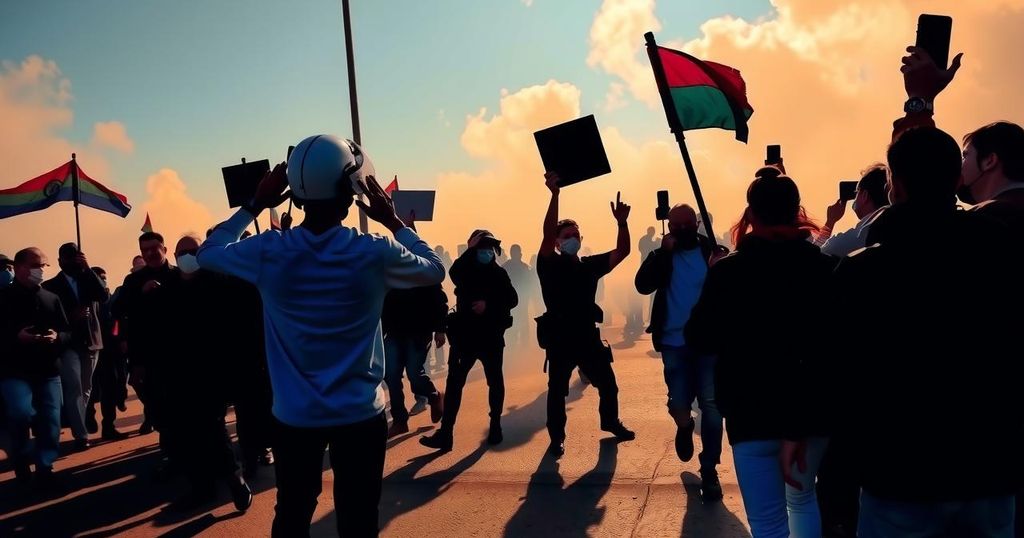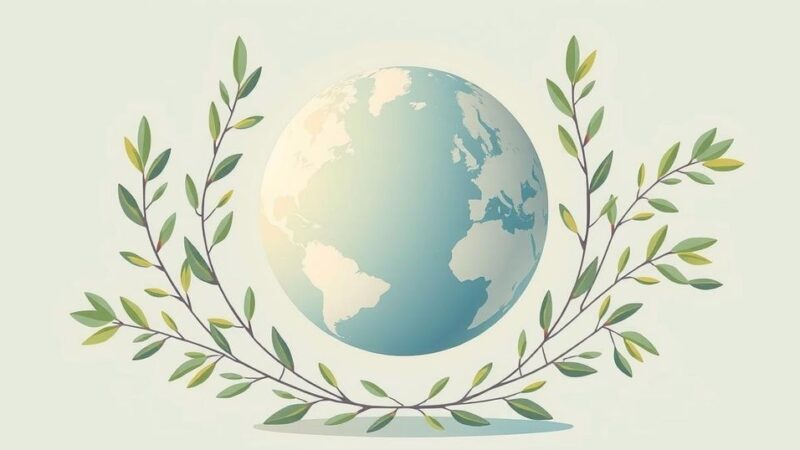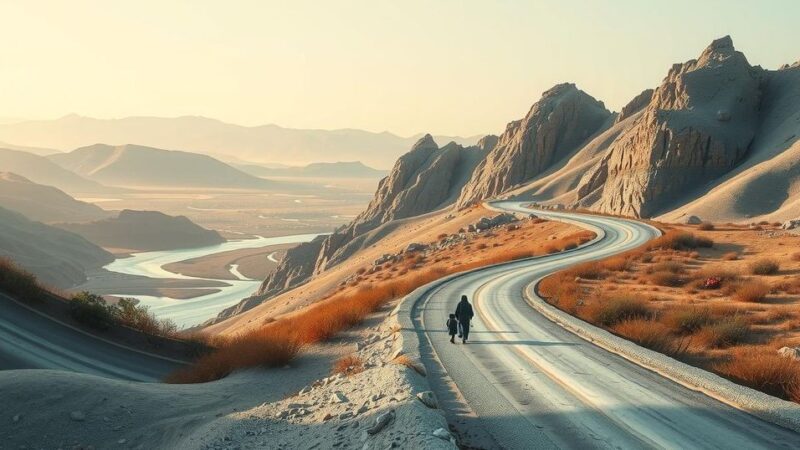Significant clashes erupted in Bolivia as Evo Morales led a protest march against President Luis Arce, resulting in injuries among demonstrators. The confrontation between Morales’s supporters and government backers unfolded violently, revealing the ongoing political feud over leadership and democracy. Claims of police interference and accusations exchanged between the two camps signify a turbulent climate as Bolivia approaches the 2025 elections.
In La Paz, Bolivia, tensions escalated as anti-government demonstrators, led by former president Evo Morales, clashed with government supporters. The demonstration, dubbed a “March to save Bolivia,” began with a significant turnout of approximately 10,000 of Morales’s supporters but quickly turned violent when they encountered a blockade by counterprotesters equipped with tear gas and stones. As the situation intensified, conflicting chants erupted between the two groups, marking a pivotal moment in the ongoing political rivalry between Morales and current president Luis Arce. The rift between Morales and Arce developed from a shared socialist movement into a bitter feud, with Morales having served as the country’s leader from 2009 until 2019, followed by Arce’s presidency starting in 2020. Disagreements regarding party leadership in 2021 catalyzed this discord, with protesters blaming Arce for severe economic troubles and fuel shortages, while Arce accused Morales of attempting to undermine his government through protests. The conflict took a darker turn with claims from Arce’s administration that the protest represented a “death march,” supposedly aimed at destroying democracy. Morales countered by alleging that undercover police sought to incite violence among demonstrators—a claim denied by the government. Despite a recent court ruling potentially barring Morales from running again, he has expressed intentions to contest the presidency in the upcoming election.
Bolivia has a complex political landscape, shaped significantly by the legacies of Evo Morales and Luis Arce. Morales, who served as president for over a decade, was the first indigenous leader in Bolivia’s history and implemented numerous social reforms. His ousting in 2019 paved the way for Arce, his former finance minister, to assume power amid a politically charged atmosphere. Since then, Morales has remained a polarizing figure, and the divisions within their political party have deepened, leading to public unrest and clashes as both leaders vie for the allegiance of the Bolivian populace in anticipation of the 2025 elections.
The recent protests in La Paz illustrate the deepening divides in Bolivian politics under the leadership of Luis Arce and the enduring influence of Evo Morales. As tensions manifest physically on the streets, the clash underscores the challenges both leaders face in navigating a fractured party base and a discontented electorate. With elections on the horizon, the political struggle is likely to intensify as both Arce and Morales make their cases to the Bolivian people.
Original Source: timesofoman.com






